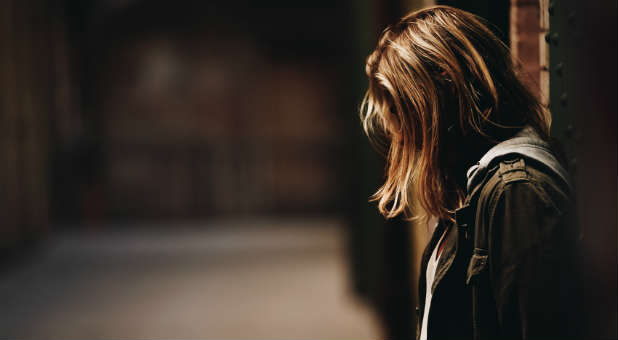Rachel Pieh Jones works and writes in East Africa. She is the author of Stronger than Death: How Annalena Tonelli Defied Terror and Tuberculosis in the Horn of Africa and writes the “Stories from the Horn” newsletter.
When I was radioactive, I carried a card in my wallet to explain why I set off alarms at the airport with my body. The card read, “Rachel Jones has undergone nuclear medical treatment.”
I keep the card in my wallet, even though I no longer need to show it at airports. I love the card and I hate it. I love it because it says I had nuclear treatment, which simply sounds awesome. I hate it because that awesome-sounding treatment didn’t give me the ability to fly or glow in the dark. I love it because not everyone gets to step through an airport scanner and explain to the TSA staff why their body is lighting up the screen and that makes me feel special. But I hate it because it means I have cancer, which also makes me feel special, but not in a good way.
I have thyroid cancer. I had a total thyroidectomy followed by radioactive iodine treatment, which meant the pill a nurse delivered inside a lead container and only touched with gloved hands and a pair of tongs, I put into my bare palm and then into my mouth and swallowed. There was nothing epic or momentous about the moment of swallowing the little pill, other than the Imagine Dragons song Radioactive, which echoed on endless repeat in my mind.
I took the pill, walked out of the hospital, drove home, retreated to the basement, and isolated myself for three days from all humans and animals, hoping that the cancer would die.
I was now a danger to society. As my body leaked radioactivity, I could damage someone else’s body simply by proximity. No touch, no shared space, no common utensils or toilets. Everything I touched needed to be scrubbed down, the space in which I breathed needed to be ventilated. No one could come within eight feet of me.
The COVID-19 response has evolved from disrupting vacations and air travel to shutting down schools and prompting “shelter at home” decrees. People are isolating at home the way I self-isolated in my parents’ basement. Being radioactive didn’t give me a fever, and wearing a mask wouldn’t have made a difference for me, but I needed to avoid human contact. It was my body, not just my breath, that was dangerous.
The fact of my body as danger made me think not about the people wearing the masks but the people they are protecting themselves from. The sick. The contagious. Coronavirus. Radioactivity. Me.
In the New Testament, Jesus touched lepers (Matt. 8:1–4). He embodied culturally subversive compassion and fearlessness around contagious disease. People could judge and shun him for touching the untouchables. They might not want to share a communal plate at mealtime with him. They might decide he was foolish or reckless.
But Jesus didn’t care what others thought. He challenged them to choose to love, even at risk to themselves. I’m not saying we need to forget about social distancing. Jesus had miraculous powers both to heal and to protect himself from contagion that none of us have. Still, it is worth noting this counter-cultural behavior.
I used to think about the joy and awe the lepers must have felt as healing power swelled through them. But what I rarely thought about is what it must have felt like for the sick to know that their bodies, their own selves were dangerous. That the simple act of being in the presence of someone they loved put that person at risk.
My own sense of shame was real, though cancer and treatment were not my fault, just as contracting COVID-19 is not the patient’s fault —no matter their nationality or ethnicity, no matter what country they are in or came from or traveled through.
Fault or no, the fear that I would harm someone I loved was real. The waves of guilt pounded me: because of me, my family couldn’t do laundry in the basement, they needed to avoid part of the house, and the medical bills for this treatment piled up while I watched Netflix alone.
Source: Christianity Today
All Content & Images are provided by the acknowledged source
